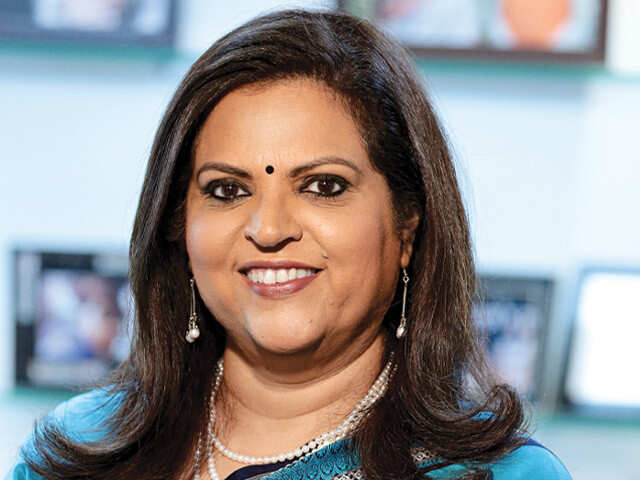
HER family calls her a drama queen. It’s a very different type of drama from what India and the world knows of Navika Kumar. One where she’s hosting primetime news shows for both Times Now and Times Now Navbharat – all part of a persona that comes from three decades of investigative journalism and political reportage.
This ‘drama’ comes, she tells me, from being a Punjabi – “I tend to make a song and dance about things in my personal life; drama runs in my blood,” she says. Currently, it is her empty nest that is giving her angst. Her two sons Sidhant and Suchet no longer live at home. Suchet, her younger one, works in Bengaluru, Sidhant is married and lives close by with her daughter-in-law Anushka – she meets him on weekends, but Navika misses having them around. Not that she’s a lot in her home either. When we catch up on a Zoom call, she has just come back after over two weeks on the road; a fortnight where she has traversed Maharashtra, Odisha and Uttar Pradesh on the campaign trail, doing primetime news shows right through, and briefing her teams several times a day. She has a backache and a migraine, she tells me, but, already by 11 in the morning when we log in for this interview, she has finished with edit meetings, caught up with breaking news, and has one eye on the 50 WhatsApp groups on which news is continuously flowing in. Her summation of her life: “Never a dull moment!”
It’s always been a busy life, but, when she’s not on the election campaign trails, Navika’s life is more ordered. She does yoga thrice a week, stating, “it calms me down a bit.” She catches up with her two news teams by 9.30 AM to discuss the agenda for the day, before sitting down to breakfast. “I lost my dad about five years ago, and my 88-year-old mother lives with me. So my husband, Mom and I bond over breakfast before he leaves for work. And, then, I have ‘mom time’ – whether it’s 15 minutes or, on a good day, half an hour, I get to just be with her, holding her hand.” Having her mom with her, she recognises, is a privilege – because she is used to being a woman in a household of four men, namely her husband Sunil Marwah, her two sons, and her (late) father-in-law. A household run on clockwork precision because that has been “how a working woman like me has lasted this long.” In a time before delivery apps, the local rationwallah was always on call for when the kids or her father-in needed anything. “I got along famously with my father-in-law,” she says, with great affection. “So much so that he willed his house to me. And, in his lifetime, I was a joint holder of the house with him.”
Her support system at home included the cook and the didi who brought up her second baby, who was born dangerously premature. “They’ve been with me for 23 years, and I would not have been able to continue work in this manner without them.” Her husband, mother and father, too, have been the backbone in Navika’s working career. “My father babysat very well,” she recalls fondly.
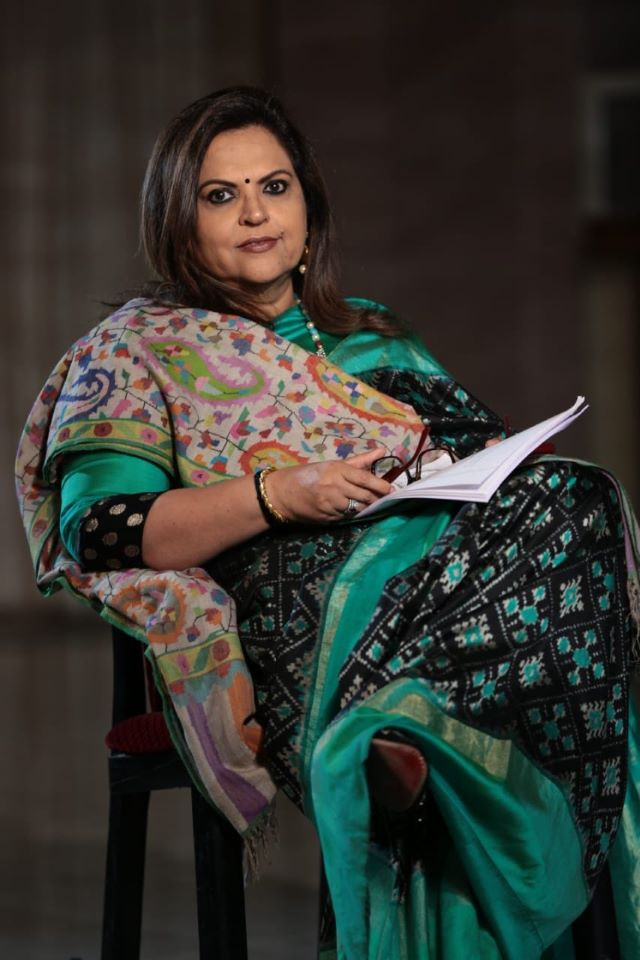
Her parents’ support was particularly precious since Navika, in many ways, did not conform to societal expectations. She grew up in Sindri in then-Bihar, in a public sector colony, because her father worked with a Public Sector Undertaking (PSU). “We grew up very protected, because the law and order situation was not great. And we did not have any great exposure to the outside world – we got the newspaper by train from Calcutta by evening, and we listened to Vividh Bharati and Radio Ceylon.” When she was finishing school, her father was making the move to the private sector, so she went to Birla Balika Vidyapeeth in Pilani, Rajasthan, to do her plus-two. “It was a girls’ school and I lived in a hostel that had 16-foot-high walls; we were never allowed out.”
And, then, Goa beckoned – her parents moved into a beautiful house on a cliff overlooking a beach – and she decided to do her Bachelors in Economics from Parvatibai Chowgule College in Goa – which was part of Bombay University then. “It was a time of firsts, my first exposure to the world, my first flight too. Unglamorous, but I enjoyed it very much.” Then came the opportunity to do a postgrad in Pune – and the world truly opened up. Life presented her with two choices – a teaching job with her Goa college, and a post with a foreign bank. She had no interest in teaching, and she had this notion that she would be counting money for foreigners at the bank – which, again, was not an option for her. But, then, a third, life-changing possibility presented itself. She was living with her sister at the time, and, over breakfast one day, she and her brother-in-law (“the big brother I had never had”) discovered a classifieds ad in the newspaper inviting candidates to take a written test for The Economic Times (ET). “And so he quietly brought me to the ET office, I gave the test, I got in.”
No one else understood it at the time, least of all her parents, but she felt a great sense of achievement at joining such a prestigious newspaper on her own merit. It was 1990 – the beginning of a long journey. Along the way, there was an arranged marriage in January 1991, her first child born in November the same year, and a break for five years to raise him. A move to Chandigarh followed when her husband took up a job there, freelancing with The Tribune, and then joining The Indian Express in 1995.
A second move to Delhi happened just six months into the job, with several editors telling her – some bluntly, some more kindly – that she was not serious about her work because she had taken time off to raise a child. The Indian Express, recognising her worth, transferred her to Delhi. She worked 10 years with the group, recounting, “My peer group had moved on in the five years I took a break, they had got a couple of promotions. I started from scratch. But, when I worked, I did some ground-breaking stories – eight-column leads on the front pages. Exciting stories that brought down several ministers.” Again, she points out, drama was never lacking – at work and at home. “Strangely enough, I have never planned my life. I have never thought I’m going to do this, or this is what I want to be. I only knew I wanted to be a career woman. It’s very easy in Punjabi families for girls to get married and get involved in life and making butter chicken, and keep work as a second priority. I always knew that I needed to continue to have a career and have my own bearings, my own personality. I was never going to lose that.”
Navika has never seen herself as a trendsetter – “I never thought of myself as setting anything on fire.” But other people clearly saw the potential she had to light things up. Arnab Goswami, then with Times Now and ET Now, contacted her in 2005. He chased her for two to three months, but she would not take his calls. “I knew nothing about television. What I did know was that, in those days, people thought that TV jobs for women ended at 40 years, and I was 38. My younger son was just four. And I thought I did not have the personality, the perseverance, the looks for television, so I kept avoiding his calls. Then, one day, I took a call by mistake. I was in Australia on work, and I had taken international roaming to keep in touch with my family, and Arnab wouldn’t stop talking. All I could think about was how much the bill was rising, so, to end the conversation, I agreed to meet him when I returned to Delhi.” The rest, as they say, is history. Navika joined Times Now on August 8, 2005. She told herself she would be there for six months, and then go back to investigative reporting. It’s been almost 20 years.
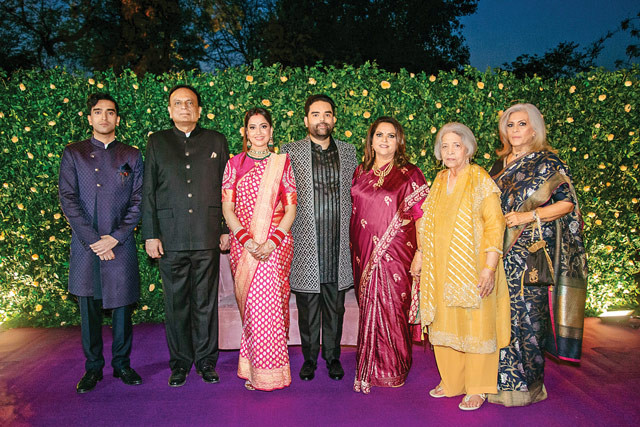
The woman we see on our screens is no-nonsense, assertive and often intimidating. I ask if this is how she really is. “Not at all,” she laughs. “I’m very ‘nonsense’ at home. I’m a home kind of girl, still a small-town girl at heart, no shoo shaa. I like hanging around the house in my kaftan, oil in my hair, with my kids around me. This is my comfort zone. My boys will hate me for saying this, but I’m the cuddly mother. So aate jaate, there will be a hug there and a peck on the cheek here. They’re used to it. All of us are foodies. We are Punjabi foodies; we’re always thinking, dreaming, talking about food. My younger son is a health enthusiast, so, right now, he’s on my case to lose weight for health reasons. We’re wondering where he’s got his genes from…”
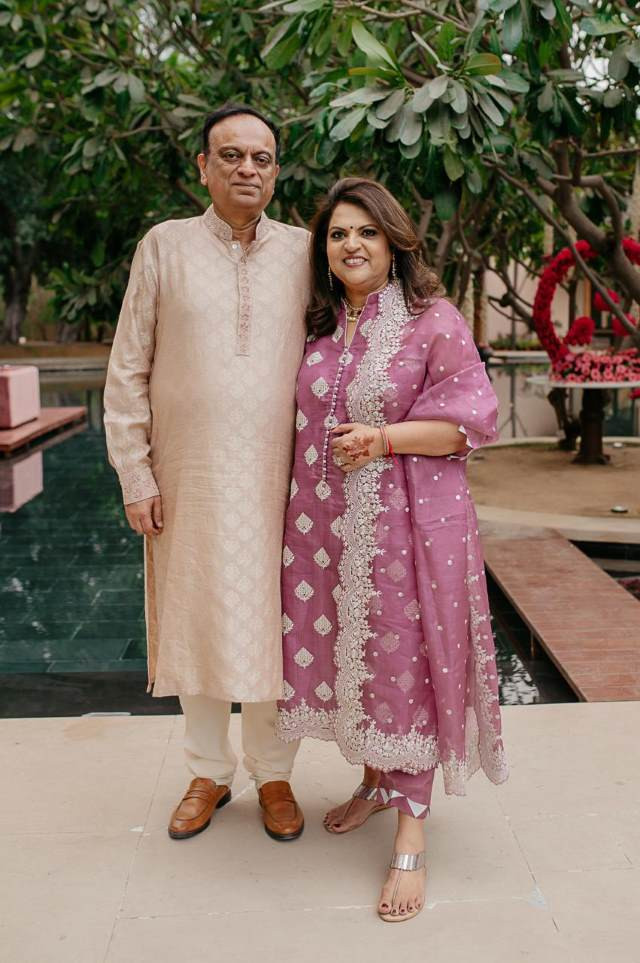
Her husband is her rock. “Through 33 years of marriage, he’s gone from being someone who was not quite impressed with my pushing myself so much to being my biggest supporter. And, when my father passed away, he was the one who brought my mother to our house to live with us. Today, when I’m at work, they spend time together. At mealtimes, I’m often the outsider when it comes to the inside jokes they share. It might have been an arranged match all those years ago, but it is what dreams are made of,” Navika says.
She believes striving for work-life balance is key to giving your best to whichever phase of life you are in. “Whenever my kids have needed me, I have been there. I’ve been there when they’ve been ill, even taken off for two to three weeks when they had their board exams. It’s important for me as a person; I wouldn’t be at peace if I hadn’t done it. I’ve probably found success later than other people in my peer group, but it’s never bothered me. I’ve controlled my ambition. I’ve set my own pace and been happy with it. Absolutely no regrets.”
Navika thinks of herself as a chronicler of history. Years ago, when she worked in Mumbai with The Economic Times and travelled to Delhi on work, she would make a certain drive every time. “Parliament, North Block, South Block fascinated me. I would look at the Parliament building and say to myself: some day, some day, I will go inside and be a part of history.” Then, for 10 years with The Indian Express, the corridors of power became so familiar to her. In her ongoing stint with television, there are few places she does not know in those edifices. “I have worked very, very hard on my stories, and that gives me great fulfilment, but I do believe in the hand of God. He made me successful in finding the stories. He gives me the strength to go on.”
On this easy Saturday morning, the Navika Kumar I see on Zoom in front of me, through this conversation, has been a revelation. Her face softened by exhaustion, one still senses a woman truly at home with herself. One who is comfortable, relaxed and genuinely engaged. What’s the one big thing you still want to do, I ask – out of sheer curiosity. “I want to meet Arijit (Singh),” she says. “I want to see him in concert.” If the stars align and the news stops breaking, who knows. It just might happen.
WORDS TO LIVE BY
“There is nothing that a woman cannot do. I’ve proved it again and again to myself and the world. Age has never mattered, nor gender. Even today, in terms of energy, in terms of passion for what I do, I can put a 20-year-old to shame.
“If you want to do news, you have to love news. It doesn’t come at convenient times for sure, it is the bane of our lives, but to have the whole story, to get it first, is what drives you. If that doesn’t drive you, you can’t make it big. Unless you love what you do with passion, you are not going to last.”
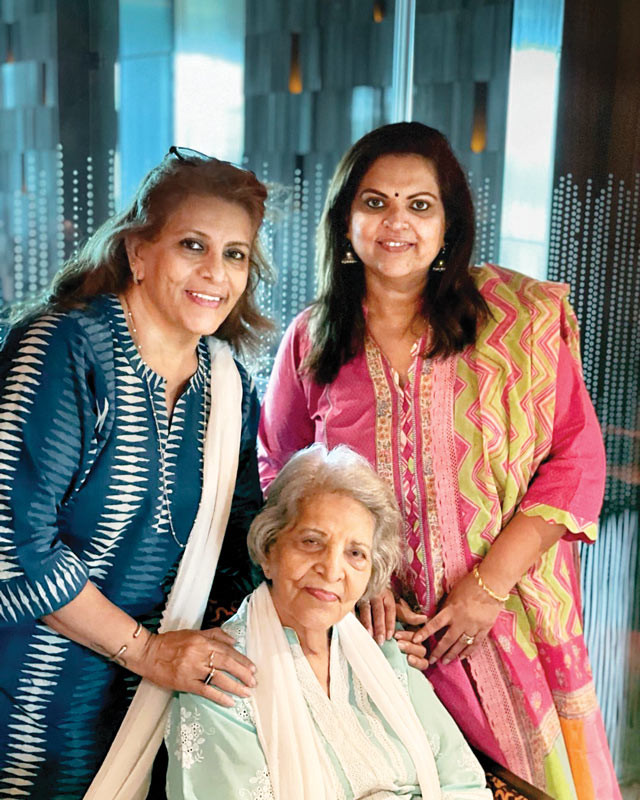
RAPID FIRE
- Your last vacation: “Goa in January, with my husband. Our first anniversary alone in 33 years!
- Ways to relax: Music. Old Hindi songs, new ones by Arijit Singh. And I like looking at airport looks on Insta! And movies – I’m a Bollywood buff – mostly on OTT platforms, because news always breaks when I go to catch a movie in a theatre hall.
- Your favourite movie: Guide
- Your hobbies: Cooking off YouTube videos for the kids
- Your all-time favourite book: Gitanjali by Rabindranath Tagore
- Alternative career: I’d be a radio jockey and play old Hindi songs.
Also Read: Kriti Sanon: In Her Orbit